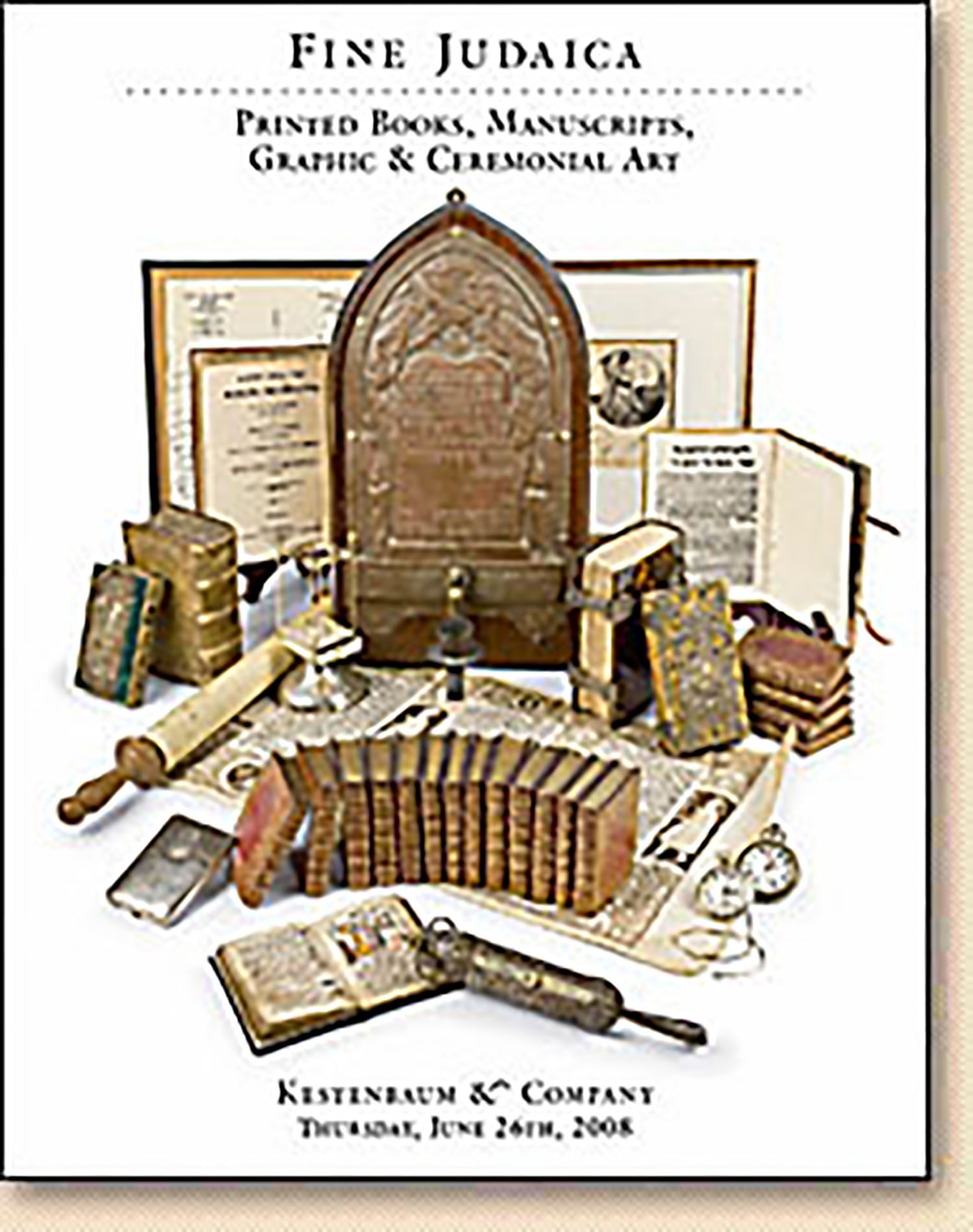(i.e. Ezobi, Joseph). (Lanx Argentea / Ke’arath Keseph). Translated into Latin by Johannes Reuchlin

AUCTION 40 |
Thursday, June 26th,
2008 at 1:00
Fine Judaica: Printed Books, Manuscripts, Autograph Letters, Graphic & Ceremonial Art
Lot 138
Hyssopaeus, Joseph
(i.e. Ezobi, Joseph). (Lanx Argentea / Ke’arath Keseph). Translated into Latin by Johannes Reuchlin
Tübingen : Thome Anshelm 1512
Est: $5,000 - $7,000
The Author, Joseph Ezobi, a thirteenth-century Jewish poet, lived in Perpignan, Aragon (today France). He most likely stemmed from Orange in Provence - Ezobi is the name for Orange in medieval Hebrew.
Ke’arath Keseph, is an ethical exhortation, in 130 verses, written to Ebozi’s son on his wedding day. “Ezobi appeals to his son to follow the ways of the Torah. He warns him not to be misled by Greek philosophy, and encourages him to learn grammar, to study the Talmud and its commentators, such as Alfasi and Maimonides, and to follow his own example and become a liturgist. He also enjoins his son not to favor the wealthy over the poor. In an appended note, he requests his son to read this poem every week” (EJ, Vol. VI, col. 1104).
"He who desires to understand the culture and world view of an enlightened Jew of the thirteenth century stands to gain much by reading Ke’arat Kesef.” (See Hayyim Schirmann, Hebrew Poetry in Spain and Provence, Book II, Vol. I, p. 343). “How close the flavor of Christian poets in the sixteenth century is to the flavor of the Jews, may be seen from the two Latin translations of Ke’arat Kesef made by two humanists famous in the generation: the German Johann Reuchlin, who referred to Ezobi as ‘the best of the Jewish poets,’ and John Mercier” (ibid.). The introduction to Reuchlin’s translation contains a sentence from Avoth in Hebrew type. See Alexander Marx, “Hebrew Type in Non-Hebrew Books,” Studies in Jewish History and Booklore, p.325, no. 68 (no copy in JTSA)
